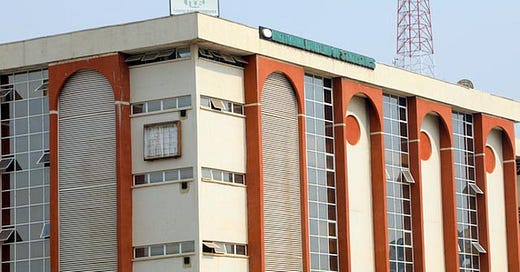Afrinvest Weekly Update | May 2024 CPI Data... Food Inflation Pressure Continues to Loom Large
An Extraction of the Afrinvest Weekly Economic & Market Report for June 21st, 2024
Photo Credit: NBS
This week, we spotlight the May CPI reading published by the NBS and public debt stock data by the DMO. To start with, NBS data showed that Nigeria’s headline inflation rate climbed to 33.95% – relative to 33.69% in April and our forecast of 34.30%. The latest print marks the 17th consecutive monthly uptrend, with food and non-alcoholic beverages sub-components as the biggest drivers. We estimate that energy goods inflation climbed by 46bps y/y to 34.2% in May from 34.0% previously. On a m/m basis, the overall inflation eased 15bps to 2.1% – below 12-month average of 2.5%. We attribute this slowdown in monthly print to better-than-expected data from food and core sub-baskets. Specifically, food and core inflation moderated by 22bps and 19bps m/m to 2.3% and 2.1% respectively.
Disaggregating this data, the expansion in annual food inflation rate for the month can be traced to the impact of low base year, evidenced by the m/m decline. Although y/y farm and processed food inflation rose to 39.6% and 41.0% respectively, monthly readings fell to 2.3% apiece from 2.4% and 2.5% in the prior month. We attribute the cool-off in May’s print to the impact of off-season harvest which supported supplies and lower prices despite the reversal in FX gains (the official NGN-USD rate depreciated by 5.9% m/m to ₦1,485.99/$1.00 at the end of May). Additionally, we believe the positive impact of a functional Dangote refinery on diesel prices, especially on transportation costs and farm machinery supported this downtrend. Elsewhere, the m/m improvement in core inflation can be linked to price moderation of bus fares, medical fees, restaurants & hotels, communication, and pharmaceutical products.
For June, our model projects that monthly farm inflation would steady at 2.3% (May: 2.3% m/m) despite challenges around food security and price pressure from the Eid-el-Kabir celebrations. We anticipate that the start of the green harvest in the south, along with lower energy prices improving food transportation, will help alleviate some pressure from structural deficiencies and insecurity in the food value chain. For the non-farm component, we anticipate a slight decline to 2.2% m/m (against 2.3% previously) although the inadequate storage facilities and pressure on the FX remain potent threats. Following, we project headline inflation is likely to remain on the uptrend, climbing by 2.3% m/m and 34.2% y/y. However, we anticipate that inflation would most likely peak in June and should begin to taper in July.
Shifting gears to the Q1:2024 public debt statistics, the DMO data showed that total debt stock rose by ₦24.3tn q/q to ₦121.7tn in naira terms – the highest level on record (domestic: ₦65.6tn, external: ₦56.1tn). The expansion in domestic debt from ₦59.1bn to ₦65.6bn (FG alone: ₦61.6bn) was primarily driven by public debt borrowings to finance budget deficit and securitize ways and means. On the other hand, external debt rose 46.6% in naira terms but remained relatively flat in dollar terms (down 0.9% to $42.1bn) reflecting the impact of naira devaluation (up 46.6% to ₦56.0tn) on debt stock. Of the 25.0% growth in debt, external component accounted for 18.3% relative to the domestic contribution of 6.7% (new borrowings).
In terms of debt mix (excluding W&M), we observed that the share of external debt increased in Q1:2024 by 6.8ppts to 46.1% while the stock of domestic debt stood at 53.9% of total debt. It is important to note that the expansion in external debt stock excludes the loan of $3.3bn from AFREXIM bank since the facility would be repaid via a crude oil swap. Meanwhile, the domestic debt grew 117.3% y/y from ₦30.2tn to ₦65.6tn due to the recognition of the ₦22.8tn ways and means under the previous administration.
Annualising the Q1:2024 in nominal GDP of ₦235.4tn, Nigeria’s debt as a percentage of GDP currently stands at 51.7% - a far cry from the DMO’s sustainable mark of 40.0%. Equally bothersome, the debt-service-to-revenue ratio remains equally high at 73.5% as of Q4:2023 – excluding the 25.0% expansion in debt without commensurate growth in revenue. Also, FG has earmarked $4.4bn in fresh loans later this year to help address infrastructural challenges which would further complicate the country's dire debt situation. In our view, to reverse this disturbing debt sustainability trend, the government must, as a matter of priority, practice fiscal restraints, implement budgetary control, and explore innovative ways to generate revenue.
Chart 1: Food Inflation Pressure Continues to Loom Large
Source: NBS, Afrinvest Research




